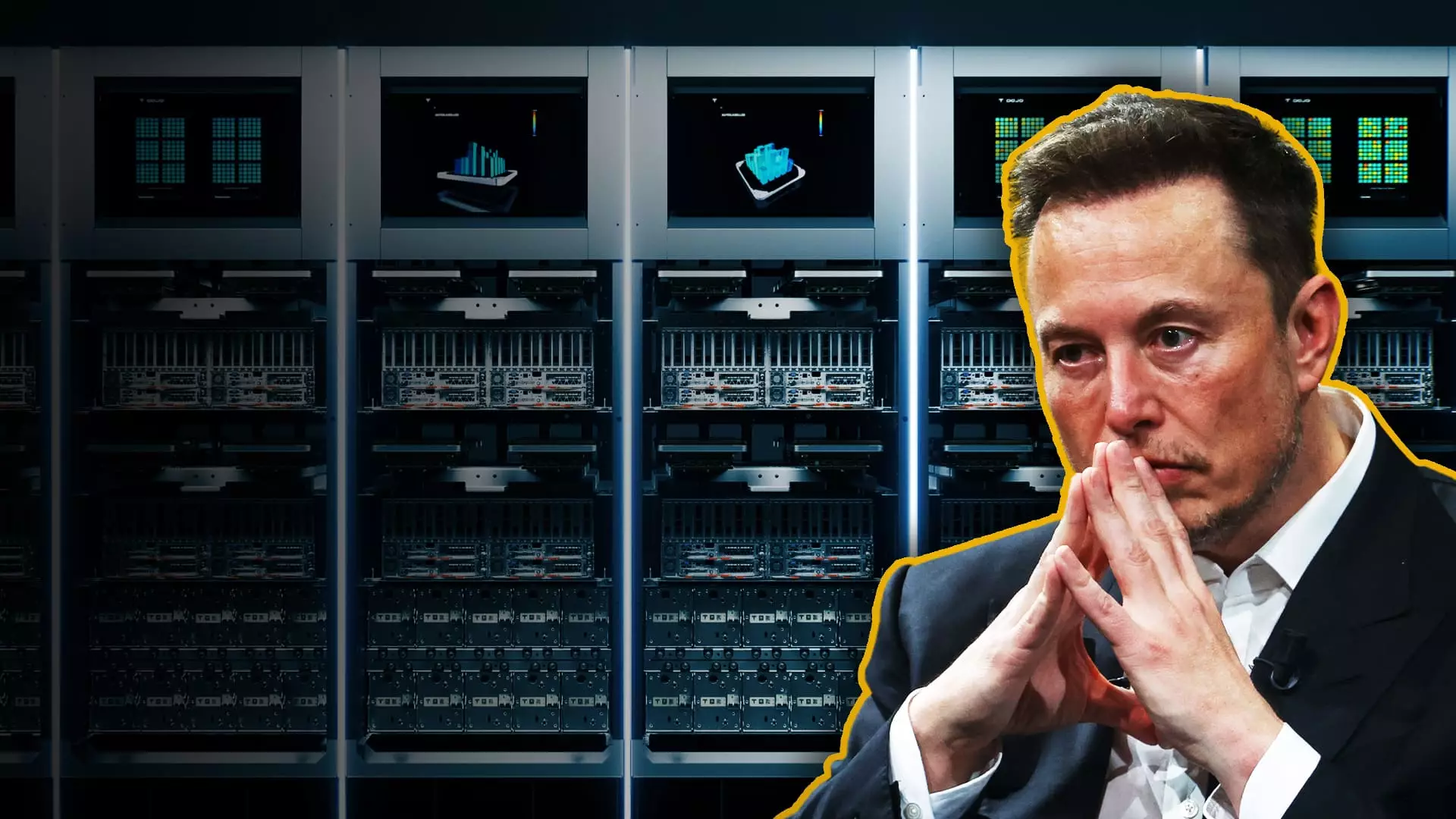Elon Musk’s ambitions stretch beyond electric cars and space exploration; they encompass the groundbreaking field of artificial intelligence (AI). As the mastermind behind Tesla and the newly minted AI company, xAI, Musk is strategically investing in supercomputers to reshape not just his ventures but the very landscape of technology. His assertion that Tesla should be regarded as a pioneer in AI and robotics illustrates a clear shift in his corporate strategy—one aimed at placing AI at the forefront of Tesla’s identity, rather than simply its automotive innovations.
The cornerstone of this ambitious technological shift is the Dojo supercomputer, a critical asset for Tesla’s future endeavors. Located in Buffalo, New York, Tesla plans to invest a staggering $500 million in Dojo, aiming to optimize the processing power needed for the copious amounts of data generated by its fleet of vehicles. This approach is not merely about faster computation; it’s about harnessing the data collected via Tesla’s extensive array of cameras and sensors to enhance its driver assistance programs, Autopilot and Full Self-Driving (FSD).
Data as a Driving Force
The implications of using Dojo extend far beyond conventional computational tasks. Steven Dickens, the chief technology advisor at Futurum Group, pointed out the unique data set Tesla has access to, derived from millions of cars on the road. Each vehicle, equipped with multiple cameras and tech, significantly contributes to a vast repository of video data, which Tesla aims to utilize to refine their FSD capabilities. With each car potentially generating thousands of miles of driving data annually, the insights gleaned from that information could be transformative for enhancing vehicle autonomy.
However, the term “Full Self-Driving” can be misleading, as both Autopilot and FSD require vigilant driver supervision. Critics argue that Tesla has, at times, oversold the capabilities of these systems. As it strives toward full autonomy, the stakes are higher than ever. Analysts contend that Tesla’s market valuation hinges on its ability to introduce a successful robotaxi program, a feature that could revolutionize personal transportation. Nevertheless, the company has recently faced setbacks, as it finds itself outpaced by competitors such as Waymo and GM’s Cruise—companies that have already rolled out autonomous taxi services in select urban areas.
As Tesla bedrocks its future on achieving autonomy, it is secure in the knowledge that its rivals are not merely idling by. The competitive landscape is robust, featuring giants like Amazon’s Zoox and a range of Chinese firms including Didi and Baidu, all making significant strides in the autonomous arena. For Musk and Tesla, the Dojo supercomputer emerges as an essential tool not just for potential self-driving cars but as a transformative vehicle for development in various markets.
Notably, Tesla has announced a forthcoming robotaxi event that aims to unveil significant advancements. The transition of Dojo from a theoretical underdog to a practical tool underscores Musk’s commitment to tackling challenges head-on.
Merging Robotics with AI Innovation
Adding yet another layer to this venture is the integration of AI-driven robotics. Dojo’s capabilities are not limited to vehicle technology; Musk envisions using it in the training of Tesla’s humanoid robot, Optimus. This technology, set to debut in Tesla factories as early as next year, reinforces Musk’s intention to permeate both the automotive and manufacturing sectors with intelligent automation.
Meanwhile, Musk’s venture xAI is making strides of its own in the AI domain, aiming to build large language models similar to those developed by industry titans like OpenAI and Google. Recently, news surfaced regarding the construction of another supercomputer, dubbed Colossus, in Memphis, Tennessee, aimed at furthering the development of xAI’s chatbot, Grok. This ambitious project signals a determined approach to create AI technology that rivals existing solutions.
Musk’s financial commitment to AI is staggering; he recently announced a projected $10 billion investment this year towards AI development. This demonstrates not just a focus on technology but an unwavering belief that AI will be pivotal to Tesla’s success and that of xAI. The dawn of this new technology era invokes questions about ethical standards and responsibilities surrounding AI—a discourse that Musk himself has ventured into, positioning himself as a critique of more established AI platforms.
As we embark upon this increasingly AI-driven world, it is clear that Elon Musk’s pursuits—be it in Tesla, SpaceX, or xAI—are reshaping definitions of innovation, autonomy, and intelligence. The trajectory of these developments will be closely watched as they unfold, marking a significant chapter in the confluence of automotive progress and artificial intelligence.

